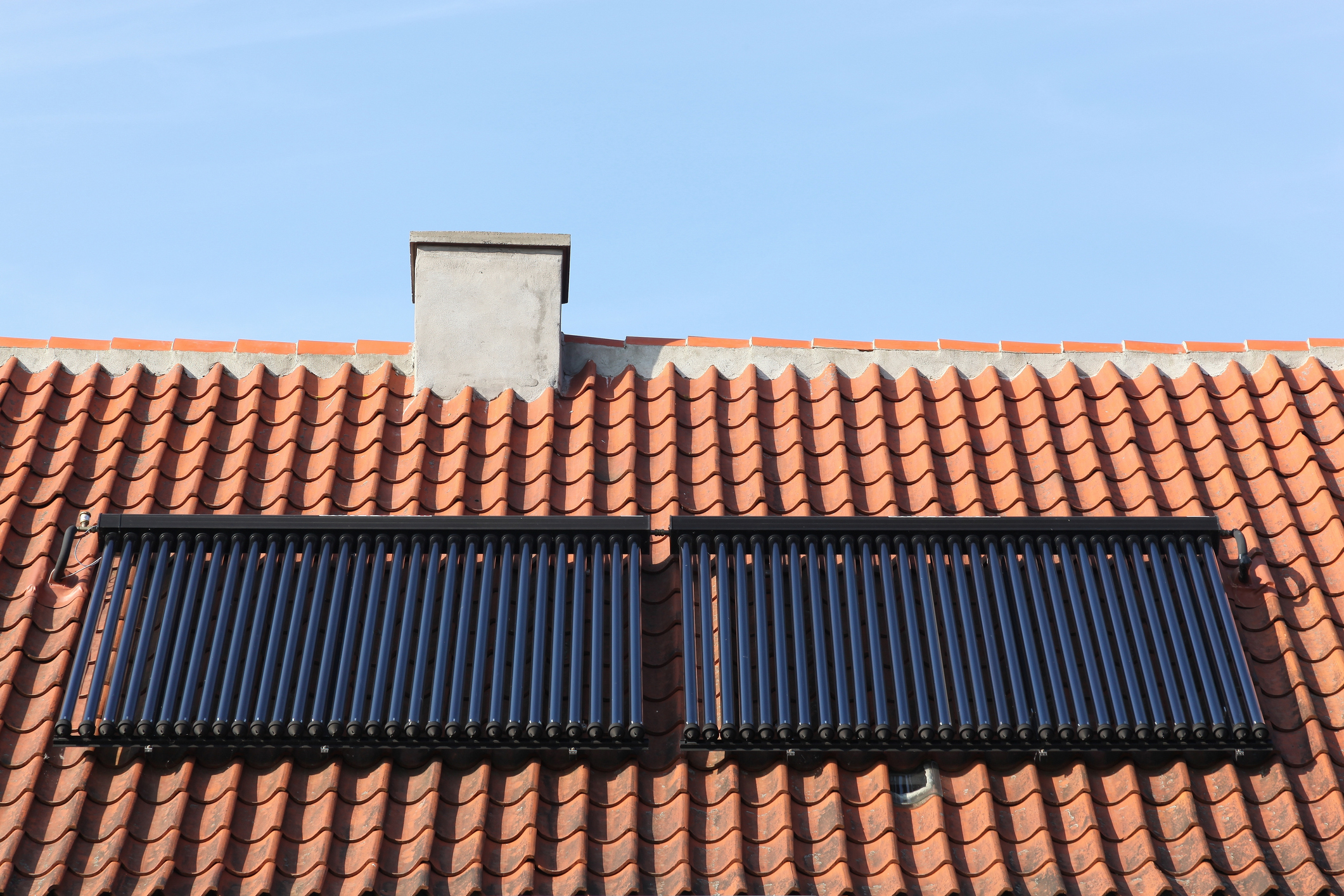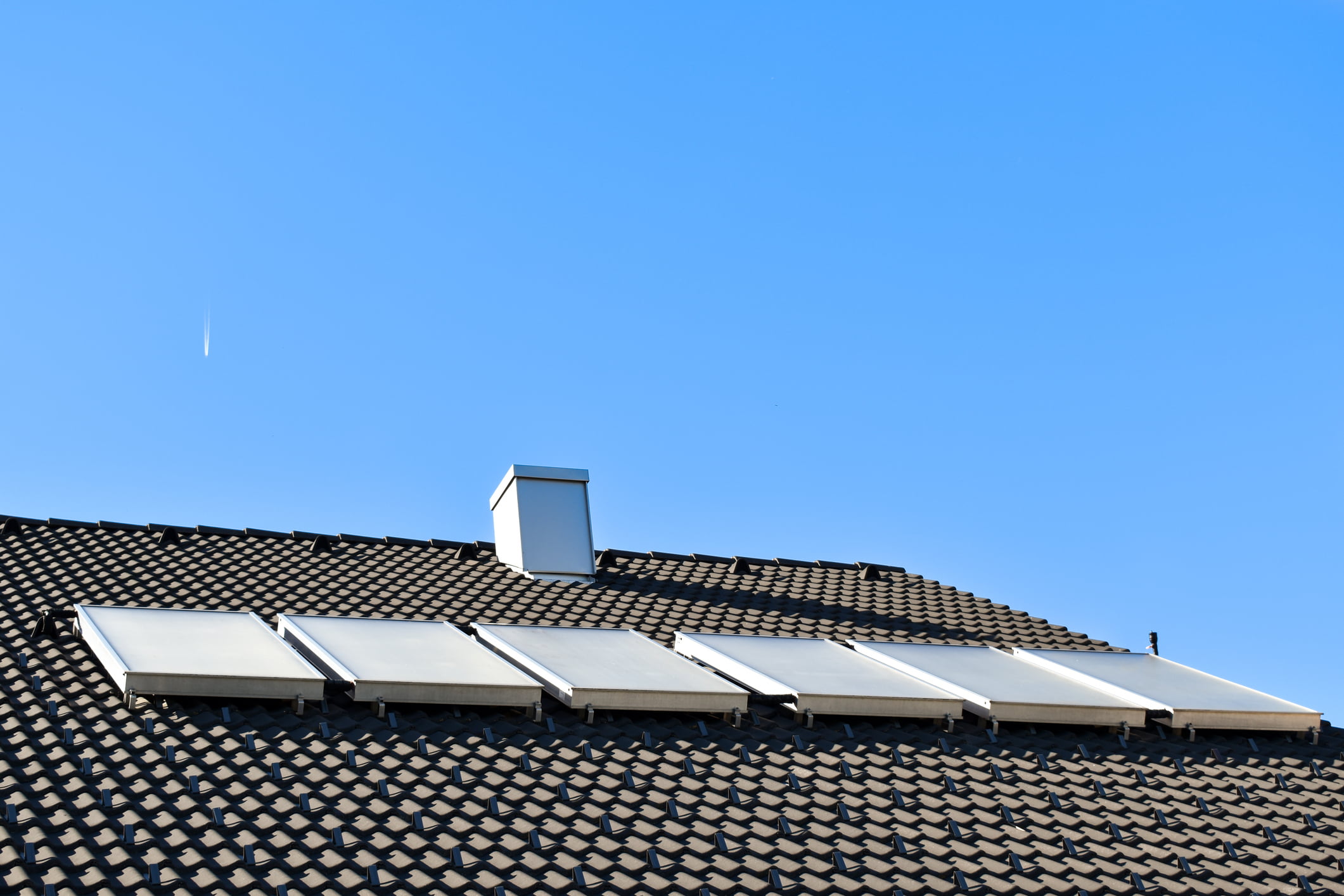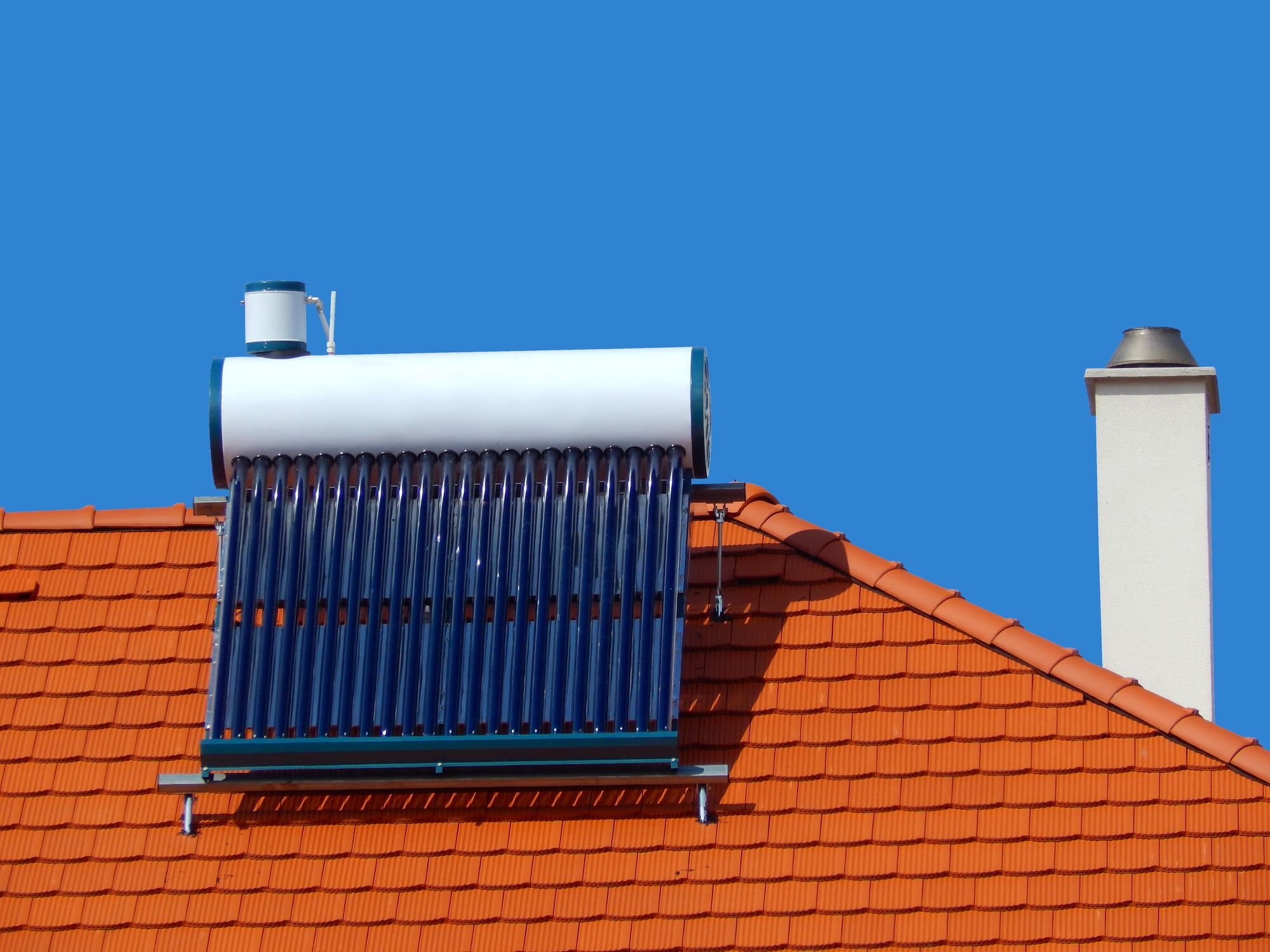Solar water heating systems, or solar thermal systems, use energy from the sun to warm water for storage in a hot water cylinder or thermal store. Because the amount of available solar energy varies throughout the year, a solar water heating system won’t provide 100% of the hot water required throughout the year. A conventional boiler or immersion heater is normally used to make up the difference.
Larger solar hot water arrays can also be arranged to provide some contribution to heating your home. However, the amount of heat provided is generally very small (less than 10% of the home’s heating requirement), so it is not usually considered worthwhile.
Most solar hot water systems are just designed to provide the hot water you use for bathing, showering and hot taps.


